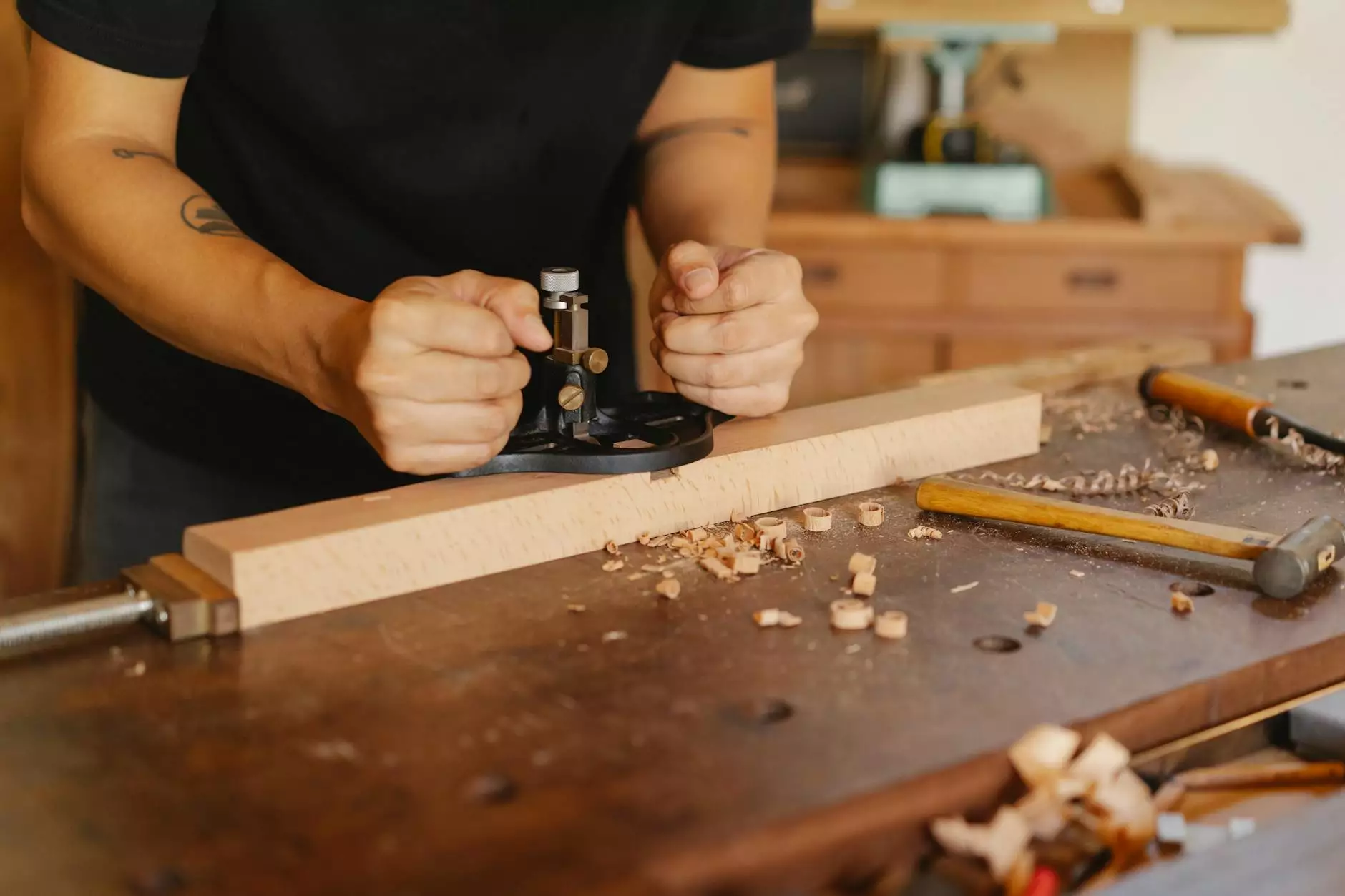CNC Turning Metal Part Factory: Excellence in Metal Fabrication

In the ever-evolving landscape of manufacturing, the CNC turning metal part factory stands as a testament to modern engineering and craftsmanship. Computer Numerical Control (CNC) technology has revolutionized the way metal parts are fabricated, ensuring both precision and efficiency. In this article, we will delve deep into the workings of a CNC turning metal part factory, its benefits, and why it is crucial for businesses in various sectors.
What is CNC Turning?
CNC turning is a machining process where a block of material is rotated while a stationary cutting tool removes material to achieve the desired shape. This method is particularly effective for producing cylindrical parts with a high degree of accuracy. At a CNC turning metal part factory, advanced software controls the movements of the machinery, allowing for intricate designs and complex geometries that would be difficult to achieve through manual machining.
Advantages of CNC Turning
The advantages of utilizing CNC turning in a metal part factory are numerous:
- Precision: CNC machines can reproduce designs with minute tolerances, ensuring that each part matches the specified dimensions perfectly.
- Efficiency: The automated nature of CNC turning allows for rapid production cycles, significantly reducing lead times.
- Complexity: CNC turning can create complex parts that would be challenging, if not impossible, to fabricate manually.
- Consistency: Once a design is programmed, CNC machines can produce countless identical parts without variation.
- Material Versatility: CNC turning can be applied to a wide range of materials, including various metals and plastics.
Applications of CNC Turning in Industry
The applications for CNC turning are vast and span multiple industries. Here are some key sectors where CNC turning metal part factories play a pivotal role:
Aerospace Industry
The aerospace industry demands exceptional precision and reliability. Components such as turbine shafts, landing gear components, and engine parts all benefit from CNC turning’s accuracy and quality.
Automotive Sector
CNC turning is widely used in the automotive sector for manufacturing engine components, transmission parts, and other vital systems that require precise engineering to ensure optimal performance and safety.
Medical Devices
In the medical field, precision is critical. CNC turning is employed to create components for surgical instruments, implants, and diagnostic equipment, ensuring that every piece meets stringent regulations.
Electronics Manufacturing
The electronics industry also relies on CNC turning for producing enclosures, connectors, and other components that require fine tolerances and high-quality finishes to function effectively.
Why Choose a CNC Turning Metal Part Factory?
When it comes to sourcing metal parts, partnering with a CNC turning metal part factory offers numerous benefits:
Expertise and Experience
Established factories bring a wealth of knowledge and experience to the table. Their engineers and machinists understand the nuances of different materials and can advise on the best practices for your specific needs.
State-of-the-Art Technology
CNC turning metal part factories often utilize the latest technology, from advanced CNC lathes to sophisticated CAD/CAM software, ensuring high-quality output.
Scalability
Whether you need a small batch of custom parts or a large production run, CNC factories can scale their operations to meet your demands without compromising on quality.
Quality Assurance
Reliable CNC turning factories implement strict quality control processes, including in-process inspections and final quality checks, ensuring that every part meets the desired specifications.
How to Choose the Right CNC Turning Metal Part Factory
Selecting the right CNC turning factory for your needs is crucial. Here are some factors to consider:
- Quality of Work: Look for factories that have a reputation for producing high-quality parts. Check reviews and request samples if possible.
- Capabilities: Ensure that the factory has the machinery and technology necessary to produce the parts you require.
- Lead Times: Inquire about their production schedules and lead times to ensure they can meet your deadlines.
- Customer Support: A good factory provides excellent customer service, helping you with any questions or concerns throughout the process.
- Pricing: While quality is paramount, compare pricing among different suppliers to find the best value.
The Future of CNC Turning in Metal Fabrication
As technology advances, the future of CNC turning looks promising. Innovations such as machine learning and artificial intelligence are being integrated into CNC systems, allowing for even greater precision and efficiency. Additionally, the rise of additive manufacturing may complement traditional CNC techniques, enabling factories to create hybrid solutions that push the boundaries of what is possible in metal fabrication.
Sustainability in CNC Turning
Many modern CNC turning metal part factories are also focusing on sustainability. By optimizing processes and minimizing waste, these facilities contribute to environmentally friendly practices while maintaining high-quality standards. This shift not only helps the planet but can also be marketed as a positive attribute to customers looking for sustainable solutions.
Conclusion
In conclusion, the CNC turning metal part factory represents a cornerstone of the modern manufacturing landscape. Its ability to produce precise, high-quality parts efficiently makes it indispensable across various industries. By understanding the advantages, applications, and future trends of CNC turning, businesses can make informed decisions that will enhance their production capabilities and drive growth. Embrace the power of CNC turning to elevate your metal fabrication processes, and watch your business thrive.
For more information on CNC turning services, visit deepmould.net.









